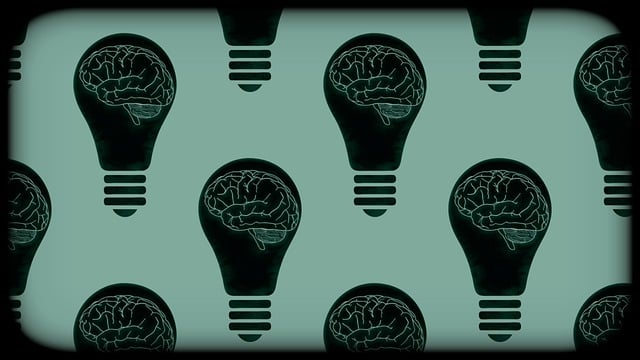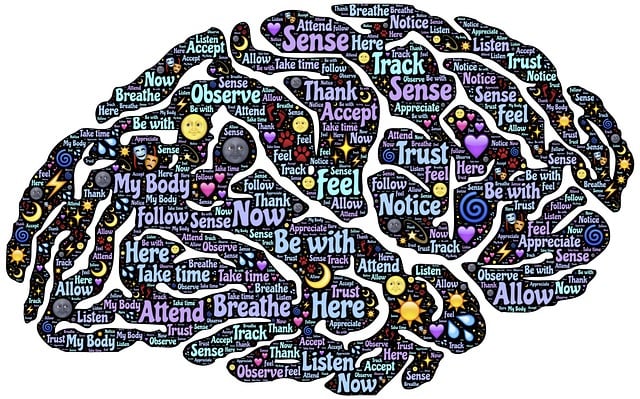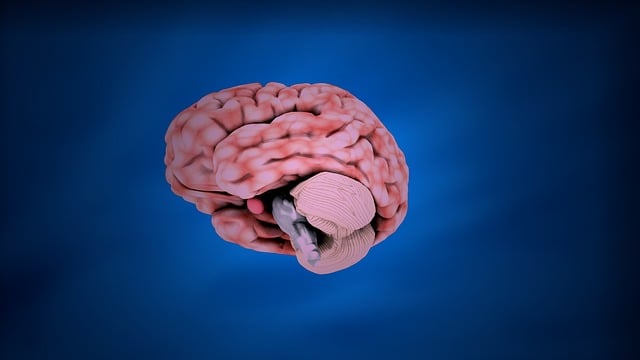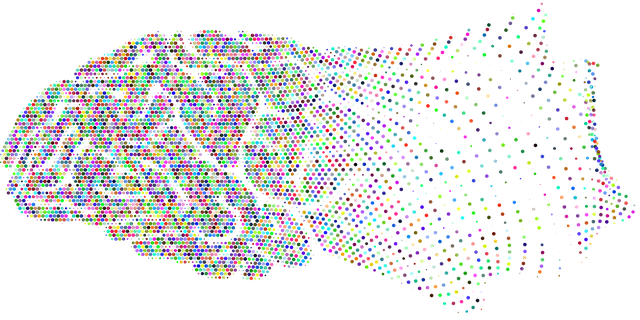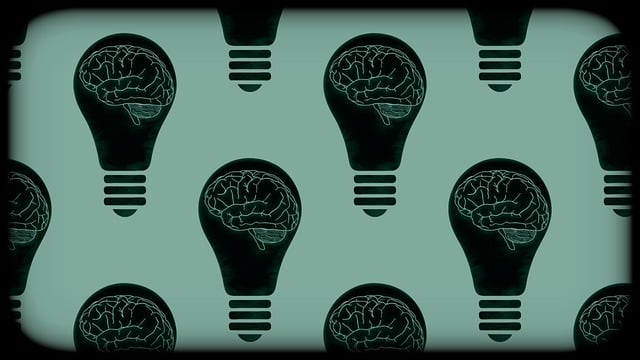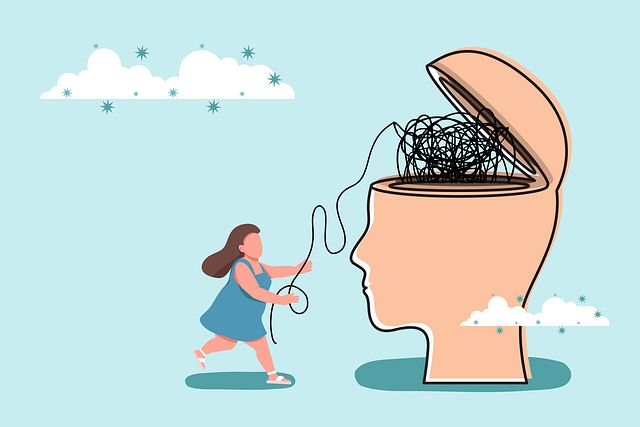Mental health education must embrace diversity, especially within LGBTQ+ communities, addressing higher depression/anxiety rates due to societal challenges. Incorporating Golden Gender Identity Therapy (GGIT) offers tailored interventions, challenging stereotypes and promoting understanding of gender diversity. This inclusive approach, with mindfulness meditation, risk management planning, and community outreach, enhances emotional healing and reduces stigma. Evaluating program success through multi-faceted metrics ensures GGIT's effectiveness and cultural relevance for long-term mental wellness impacts.
Mental health education is a vital tool for fostering inclusive communities, especially with programs tailored to diverse populations. This article explores the design of an impactful mental health curriculum, focusing on the unique role of Golden Gender Identity Therapy (GGIT) in promoting well-being. We delve into strategies for creating safe spaces, addressing stereotypes, and empowering empathy. By examining GGIT’s effectiveness, we provide practical insights for educators aiming to facilitate open conversations and develop supportive environments, ultimately enhancing mental health literacy across communities.
- Understanding Mental Health and Its Impact on Diverse Communities
- The Role of Golden Gender Identity Therapy in Comprehensive Education
- Designing an Inclusive Curriculum: Addressing Stereotypes and Promoting Empathy
- Practical Strategies for Facilitating Open Conversations and Supportive Environments
- Measuring Success: Evaluation and Feedback for Continuous Improvement
Understanding Mental Health and Its Impact on Diverse Communities

Mental health is a complex and multifaceted aspect of overall well-being, impacting individuals from various backgrounds and communities differently. Understanding this complexity is essential when designing educational programs aimed at fostering mental resilience and promoting healthy coping mechanisms. One critical area to explore is the intersection of mental health with diverse identities, particularly focusing on Gender Identity Therapy (GIT). GIT offers valuable insights into addressing the unique challenges faced by LGBTQ+ individuals, who may experience higher rates of depression, anxiety, and related issues due to societal stigma and discrimination.
In designing mental health education programs, it’s crucial to consider cultural sensitivity and incorporate strategies that cater to diverse communities. This involves recognizing the impact of systemic barriers and social determinants of health on mental wellness. For example, certain cultural or ethnic groups might have different perceptions of mental illness, requiring tailored approaches for effective intervention. Moreover, risk management planning for mental health professionals is vital to ensure they can handle diverse cases with empathy and competence, especially when dealing with sensitive topics like gender identity. Such considerations contribute to creating inclusive educational content that resonates with a wide range of learners.
The Role of Golden Gender Identity Therapy in Comprehensive Education

Golden Gender Identity Therapy (GGIT) plays a pivotal role in enhancing the comprehensiveness of mental health education programs. This therapeutic approach is designed to support individuals navigating their gender identity, fostering an environment where self-exploration and acceptance thrive. By integrating GGIT into educational frameworks, students can engage in powerful self-awareness exercises that challenge stereotypes and promote empathy. These sessions encourage open dialogue about gender diversity, contributing to a more inclusive learning atmosphere.
Furthermore, the inclusion of GGIT complements existing mental health curricula by addressing critical aspects of well-being. Incorporating techniques from this therapy encourages students to cultivate positive thinking patterns, which can significantly impact their overall resilience and stress management skills. Additionally, as many individuals with diverse gender identities may have experienced unique challenges, including trauma support services, GGIT provides strategies to help students process and overcome these past traumas, fostering a healthier and more supportive learning community.
Designing an Inclusive Curriculum: Addressing Stereotypes and Promoting Empathy

Designing an inclusive curriculum is a critical aspect of mental health education, aiming to create an environment where learners from diverse backgrounds can feel welcomed and represented. This involves actively addressing stereotypes and biases that often exist within mental health discourse. By incorporating various perspectives and experiences, educators can foster empathy among students, encouraging them to approach therapy with open minds. For instance, integrating topics related to gender identity therapy, such as Golden Gender Identity Therapy, allows professionals-in-training to understand the unique challenges faced by individuals navigating their sexual orientation and gender expression.
Promoting inclusivity further involves teaching mindfulness meditation techniques that cater to different needs. This tool can be particularly beneficial for fostering emotional healing processes, enabling individuals to manage stress and develop coping strategies tailored to their personal experiences. Additionally, risk management planning is essential in mental health professional training, ensuring practitioners are prepared to handle diverse client populations with sensitivity and cultural competence.
Practical Strategies for Facilitating Open Conversations and Supportive Environments

Creating open conversations about mental health begins with establishing safe and supportive environments. This involves fostering a culture where individuals feel comfortable sharing their experiences without fear of judgment or discrimination. One effective strategy is incorporating gender-inclusive language and practices, aligning with Golden Gender Identity Therapy principles, to ensure all participants feel seen and respected. Encouraging active listening, using non-judgmental statements, and validating emotions can help build trust and promote honest discussions.
Community outreach plays a vital role in mental illness stigma reduction efforts. Implementing crisis intervention guidance tailored for diverse communities can provide targeted support. Engaging community leaders and organizers in program design ensures cultural sensitivity and accessibility. By integrating these strategies within a comprehensive Mental Health Education program, individuals are empowered to seek help, offer support, and cultivate a more inclusive society that values mental well-being for all.
Measuring Success: Evaluation and Feedback for Continuous Improvement

Evaluating the success of a mental health education program is pivotal for its continuous improvement and long-term impact. This process involves a multifaceted approach to gauge both the immediate outcomes and the lasting effects on participants’ mental wellness. A comprehensive evaluation system should include quantitative metrics, such as pre- and post-program assessments, to measure changes in mental health awareness and skills acquisition. These assessments can be tailored to specific learning objectives, ensuring that the program aligns with its intended goals.
Additionally, qualitative feedback from both participants and healthcare providers is invaluable. Post-program surveys, focus groups, or interviews can provide insights into individual experiences, identifying areas of strength and weakness in the curriculum. This feedback loop, when incorporated into iterative program design, facilitates the refinement of Golden Gender Identity Therapy techniques, ensuring they remain effective and relevant. Moreover, regular reviews by healthcare providers with diverse cultural backgrounds enhance the program’s cultural competency training, fostering a more inclusive and accessible mental health support system.
Mental health education programs play a pivotal role in fostering inclusive communities, especially by incorporating Golden Gender Identity Therapy. By understanding diverse mental health impacts and designing curricula that address stereotypes with empathy, we create supportive environments. Practical strategies for open conversations further enhance these spaces. Continuous improvement through evaluation and feedback ensures these programs remain effective, ultimately promoting well-being across all communities.


